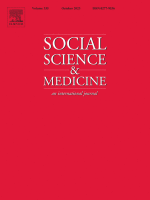Did the design and planning of testing and contact tracing interventions for COVID-19 consider social inequalities in health? A multiple case study from Brazil, Canada, France & Mali
Abstract
The COVID-19 pandemic has led to an unprecedented global crisis. It has exposed and exacerbated weaknesses in public health systems worldwide, particularly with regards to reaching the most vulnerable populations, disproportionately impacted by the pandemic. The objective of our study was to examine whether and how social inequalities in health (SIH) were considered in the design and planning of public health responses to COVID-19 in jurisdictions of Brazil, Canada, France, and Mali. This article reports on a qualitative multiple case study of testing and contact tracing interventions in regions with high COVID-19 incidence in each country, namely: Manaus (Brazil), Montréal (Canada), Île-de-France (France), and Bamako (Mali). We conducted interviews with 108 key informants involved in these interventions in the four jurisdictions, focusing on the first and second waves of the pandemic. We analyzed our data thematically using a theoretical bricolage framework. Our analysis suggests that the lack of a common understanding of SIH among all actors involved and the sense of urgency brought by the pandemic eclipsed the prioritization of SIH in the initial responses. The pandemic increased intersectoral collaboration, but decision-making power was often unequal between Ministries of Health and other actors in each jurisdiction. Various adaptations to COVID-19 interventions were implemented to reach certain population groups, therefore improving the accessibility, availability, and acceptability of testing and contact tracing. Our study contributes to identifying lessons learned from the current pandemic, namely that the ways in which SIH are understood shape how interventions are planned; that having clear guidelines on how to integrate SIH into public health interventions could lead to more inclusive pandemic responses; that for intersectoral collaboration to be fruitful, there needs to be sufficient resources and equitable decision-making power between partners; and that interventions must be flexible to respond to emerging needs while considering long-standing structural inequalities.
Members and SHERPA Teams

Lara Gautier
Professor, Département de Gestion, d’Évaluation et de Politique de Santé, École de Santé Publique, Université de Montréal
Patrick Cloos
Professor, École de travail social Université de Montréal (UdeM)

